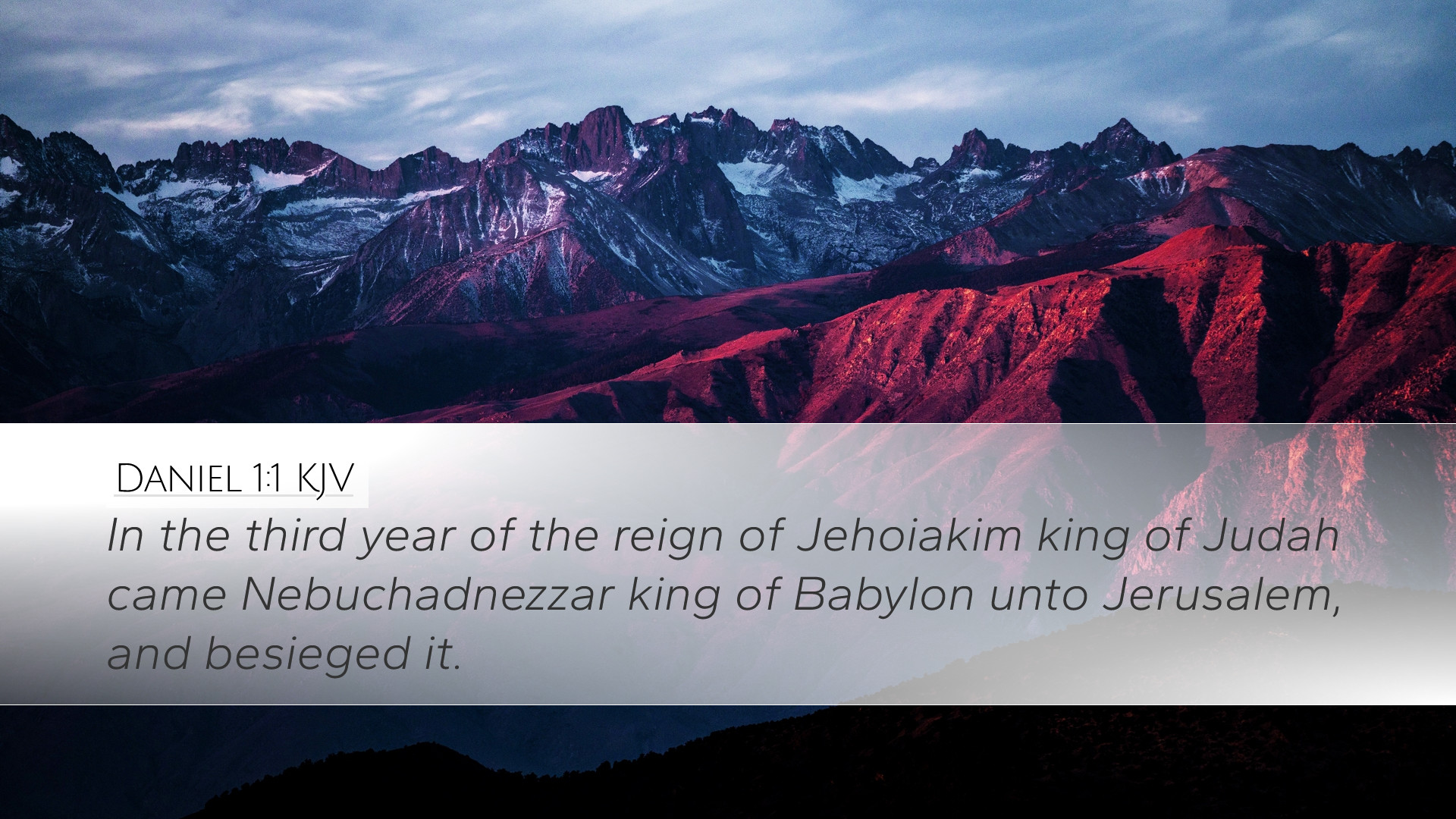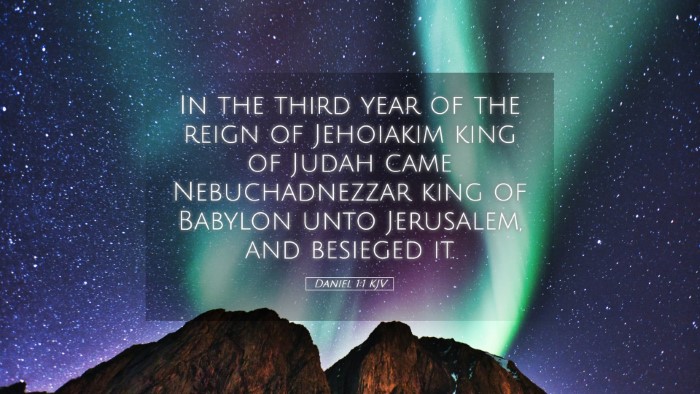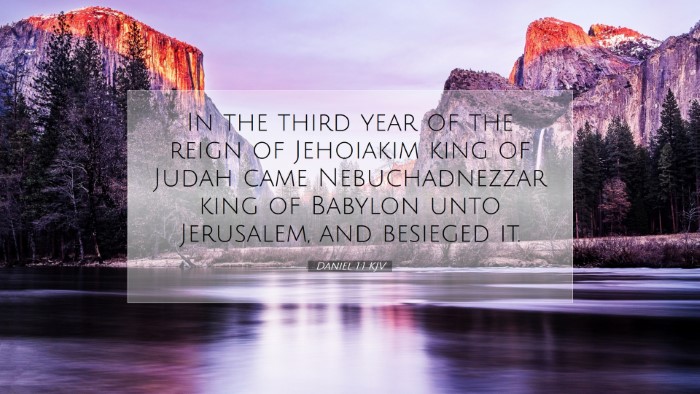Old Testament
Genesis Exodus Leviticus Numbers Deuteronomy Joshua Judges Ruth 1 Samuel 2 Samuel 1 Kings 2 Kings 1 Chronicles 2 Chronicles Ezra Nehemiah Esther Job Psalms Proverbs Ecclesiastes Song of Solomon Isaiah Jeremiah Lamentations Ezekiel Daniel Hosea Joel Amos Obadiah Jonah Micah Nahum Habakkuk Zephaniah Haggai Zechariah MalachiDaniel 1:1
Daniel 1:1 KJV
In the third year of the reign of Jehoiakim king of Judah came Nebuchadnezzar king of Babylon unto Jerusalem, and besieged it.
Daniel 1:1 Bible Commentary
Commentary on Daniel 1:1
Introduction
Daniel 1:1 reads, "In the third year of the reign of Jehoiakim king of Judah came Nebuchadnezzar king of Babylon unto Jerusalem, and besieged it." This verse serves as a pivotal introduction to the Book of Daniel, setting the stage for the theological and historical narratives that unfold. Within this commentary, we will explore the significance of this event, its implications for the Jewish people, and its broader theological themes.
Historical Context
Jehoiakim reigned in Judah during a time of great political instability and moral decay. The purpose of Daniel’s writing is rooted in this historical moment, where the kingdom of Judah faced the looming threat of Babylonian domination.
Public Domain Insights:
- Matthew Henry emphasizes the decline of Judah as emblematic of Israel's covenant unfaithfulness, highlighting that such besiegement was a fulfillment of prophetic warnings (Jeremiah 25:8-11).
- Albert Barnes notes the exactness of the timeline provided in the verse, indicating that historical records place Nebuchadnezzar's advance as a critical moment in the decline of the Jewish state.
- Adam Clarke elaborates that Nebuchadnezzar's siege marks a significant shift in the geopolitical landscape, illustrating the transition from Jewish autonomy to Babylonian rule.
Theological Implications
This verse encapsulates several theological themes vital for understanding the Book of Daniel:
- God's Sovereignty: The capture of Jerusalem by Nebuchadnezzar is seen as a demonstration of God’s sovereignty over earthly kingdoms. God's hand is present in both judgment and rescue throughout the narrative.
- The Faithfulness of God’s People: The ensuing account of Daniel and his companions illustrates how God’s faithfulness is displayed through the lives of His faithful followers in a foreign land.
Literary Structure
The introduction serves as a narrative hook, setting the stage for the unfolding drama of faith under persecution. The verse is succinct yet packed with significance, offering insight into the plight of Judah as well as a foreshadowing of the challenges to come for Daniel and his fellows.
Many scholars note:
- The precise mention of "the third year" indicates a historical marker, an assertion of authenticity.
- The names of the two kings signify the clash of two major powers: the once-noble Jewish kingship and the rising force of Babylon.
Interpretative Challenges
There are interpretative challenges related to this verse, notably concerning the dating of the events and differences in manuscript tradition. Understanding the historical chronology surrounding Jehoiakim’s reign is essential for proper interpretation.
Scholarly Thoughts:
- Matthew Henry points out that differing historical accounts and scriptural records can lead to confusion regarding timelines.
- Albert Barnes suggests that understanding the geopolitical situation can enhance our comprehension of the spiritual struggles depicted in the subsequent chapters.
- Adam Clarke notes that awareness of the Babylonian cultural context is crucial for comprehending the trials faced by Daniel and his companions.
Practical Applications
This introductory verse offers vital lessons for contemporary readers, especially for pastors and theologians seeking to draw practical applications for their congregations:
- Faith in Adversity: Just as Daniel trusted God amidst uncertainty, so too are believers called to demonstrate faith in challenging circumstances.
- Cultural Engagement: The tension between faithfulness to God and navigating a secular world offers a framework for modern Christian living.
- Leadership and Influence: The choices made by Daniel and his friends illustrate the impact of godly character in positions of influence.
Conclusion
Daniel 1:1 serves as a crucial entry point into a profound exploration of faith in a time of crisis. The theological and practical lessons embedded in this verse resonate through the ages, providing guidance and challenge for believers today. Through examining the historical, theological, and practical dimensions of this passage, we may glean insights that inspire deeper faith and understanding of God's magnificence amidst turmoil.


